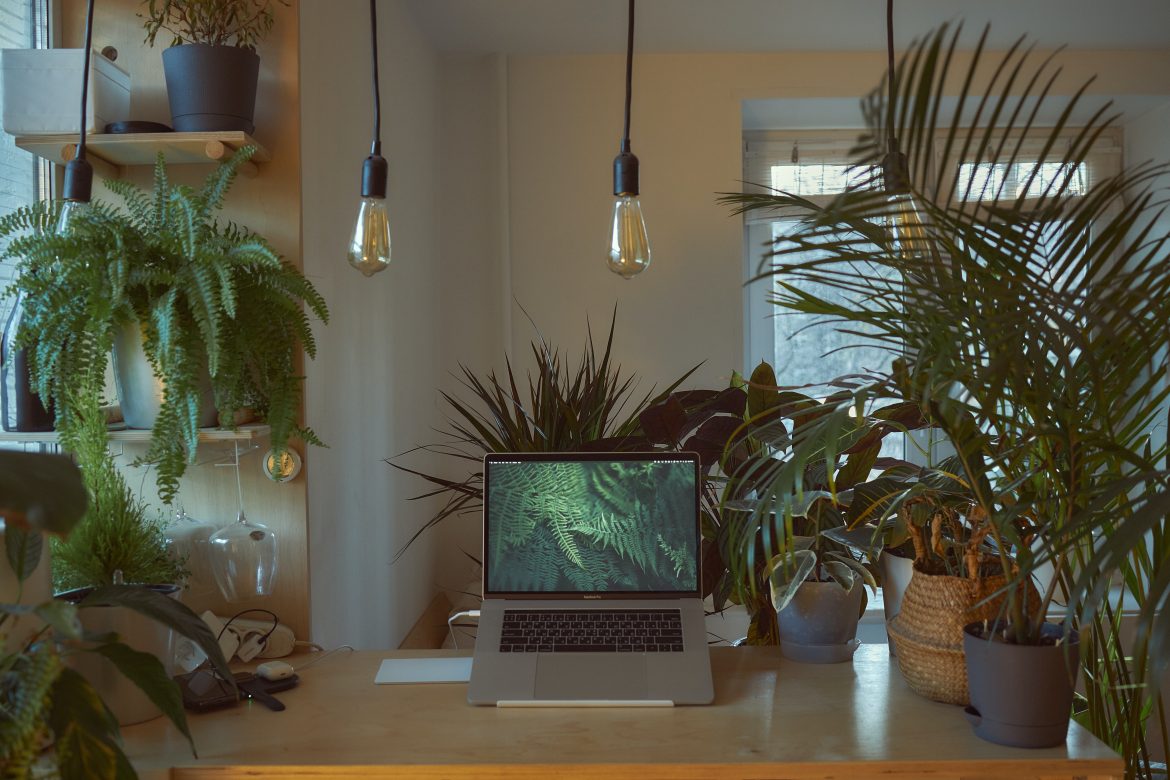In recent years, the trend of bringing the outdoors in has taken the interior design world by storm, and it’s not difficult to see why. Indoor plants not only enhance the aesthetics of your living spaces but also provide a breath of fresh air, quite literally.
Creating a lush, green haven indoors is a dream come true for many plant enthusiasts, and it’s easier than you might think.
Explore wall-to-wall greenery within your space:
Floor plants
Floor plants are the foundation of your indoor garden. Large, leafy plants such as the Fiddle Leaf Fig (Ficus lyrata) and Rubber Plant (Ficus elastica) are excellent choices. These specimens provide a focal point in your living room or bedroom and contribute to cleaner air by filtering out pollutants.
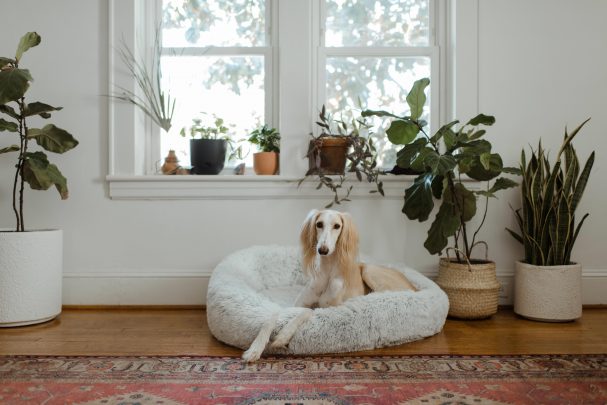
Image credit: Unsplash
Surfaces
For those looking to add a touch of green to tables, shelves, or counters, consider succulents like the Echeveria or the Snake Plant (Sansevieria). These low-maintenance plants are perfect for beginners and can thrive in a variety of light conditions. A stylish, minimalist planter can accentuate your home’s decor.
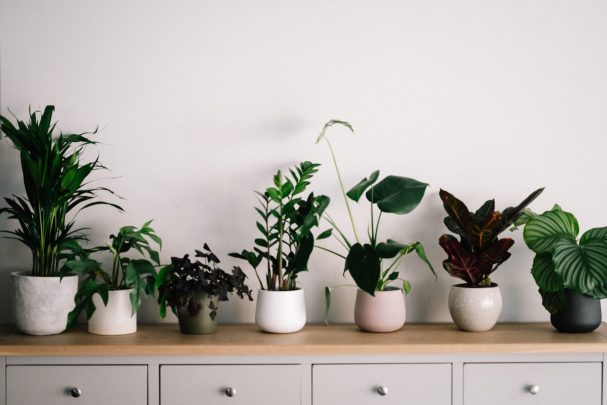
Image credit: Unsplash
Against the wall
Dress up empty wall spaces with climbing or trailing plants. The Pothos (Epipremnum aureum) and Philodendron Heartleaf (Philodendron hederaceum) are ideal choices. Use wall-mounted planters, trellises, or macrame hangers to display these beauties. Not only do they add a lush green backdrop, but they also bring life and charm to your interior.
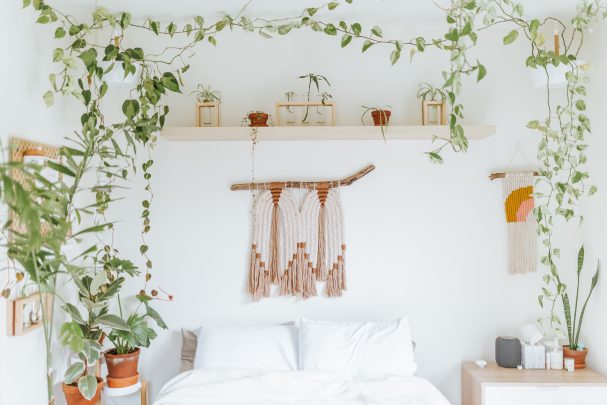
Image credit: Unsplash
Hang from the ceilings
Hanging plants create a whimsical and visually appealing display in your home. Macrame plant hangers are excellent for this purpose. Choose hanging plants like the Spider Plant (Chlorophytum comosum) or the String of Pearls (Senecio rowleyanus) for a stunning cascade of greenery. Hanging plants also make efficient use of vertical space, making your room appear larger.
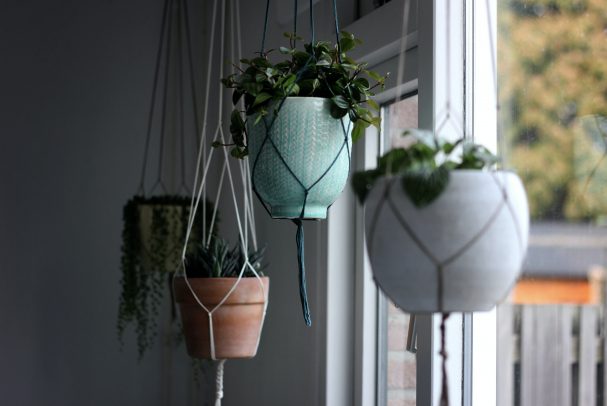
Image credit: Unsplash
Incorporating a variety of plant species and placements in your home not only provides an enchanting atmosphere but also offers multiple health benefits. Plants purify the air, increase humidity, reduce stress, and promote a sense of well-being.
Remember to consider the lighting conditions in each area of your home and choose plants that suit them. Most indoor plants thrive in indirect, filtered light, but some may need more or less light.
A version of this article was published in Garden&Home May 2023 print edition
Feature image: Unsplash

